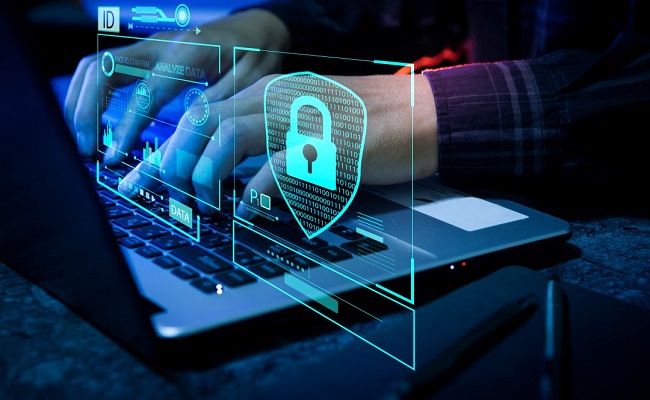Given that the majority of modern business operations are digitalized, we process large quantities of virtual assets on a daily basis. As such, data protection has become a vital component for any business. Handling information the right way will not only remove certain risks but will also improve your market position.
Unfortunately, even with the best measures in place, there’s no guarantee that your information will stay safe. Most businesses circumvent this problem by hiring IT services experts. With a reputable provider at your side, you can avoid external attacks and viruses, address system vulnerabilities, prevent downtimes, and optimize your tech processes.
Still, that doesn't mean you should completely relinquish data protection control to external entities. As a responsible business owner, you should seek to understand what's going on in the background so you can better assess providers' work.
In this article, we'll go through the best practices for safeguarding companies' sensitive information. Having all these measures in place ensures your business operates at an optimal level and at the lowest cost possible. More importantly, it minimizes the potential negative impact of the human factor.
1. Protection Against External Factors
In the second quarter of 2024, we’ve observed that the number of global attacks has increased by 30%. While this increase might sound shocking, it is nothing more than a continuation of a long-lasting and dangerous trend. In fact, these external threats are nowadays every bit as problematic for your business as is external competition.
While you can never be fully safe from outside attacks, there are lots of measures you can undertake to protect your business. For example, companies regularly update their software to make sure there aren’t vulnerabilities within the system.
MSPs introduce firewalls, various antivirus programs, and two-factor authentication to address these problems on a daily basis. Some businesses go as far as to introduce advanced solutions such as zero-trust architecture and trusted platform modules.
2. Managing Data Movement
Today, many businesses utilize cloud storage for their sensitive data. While using cloud providers can significantly reduce your operative costs, it also exposes you to certain risks. Most notably, you have to relinquish control over your data to an outside company, which might not protect it the right way.
Companies should always be aware of where their data is stored. Specifically, they have to know where these external servers are located and what kind of protection is used to protect them. This makes it easier to determine if the other company is doing a good job with your information.
Many businesses have started using data loss prevention software to scan networks for sensitive data. So, if you find out that your data is placed in an unauthorized location, you can take reactive measures such as encryption or deletion. That way, you can rest assured the information won’t get in the wrong hands.
3. Implementation of Encryption
Encryption is the best way to safeguard your valuable information as it moves from source to its final destination. Nowadays, it is a common practice to encrypt most of your data, especially financial ones, thus preventing intrusion.
The reason why encryption has become so critical has to do with remote work. As we move around and access various public networks, we're always at risk of breach. By encrypting data on our smartphones, USBs, and hard drives, we ensure all our information is safe regardless of where we're located.
That way, even if you were to lose some of the information, the outsiders won’t be able to access it without your phone and password.
4. Employee Education
Even with the best software and encryption, we're still exposed to various risks when handling sensitive data. In fact, company employees are the ones who often inadvertently give access to intruders. Clicking on the wrong link or sharing information with the wrong person can open a can of worms that might cost your business millions of dollars.
To circumvent this issue, serious businesses should introduce employee training at all levels. Staff is taught how to react in different situations and how to recognize a potential outside threat. With proper compliance regulation and clear guidelines, the chance of human error is reduced tenfold.
While this training is valuable for all employees, it’s crucial for top executives. In the end, CEOs, CFOs, and other managers are the ones handling the majority of sensitive company data. To avoid potential mishaps, the ownership introduces a set of rules that will ensure the same level of protection across the board and during various processes.
5. Introduction of BYOD Policies
BYOD, or Bring Your Own Device, is a policy that has become more common in the last several years. Basically, many companies nowadays encourage employees to use their own laptops when at work. This policy is great for employees as it allows them to store all relevant information on their personal devices, but it also reduces the company's hardware costs.
Unfortunately, this practice also introduces potential data safety vulnerabilities. For example, this means each person needs proper cybersecurity software, which they'll update on a regular basis. Potential issues might also arise while traveling, especially if the employee is sharing their laptop with other people.
To avoid potential issues, large companies generally prevent certain data from leaving the company. They also implement device control policies that will monitor the application of cybersecurity software and other measures. Basically, each staffer is required to align their personal device security with the company’s standards to ensure maximum data protection.
Last Thoughts
Whether you're handling data safety yourself or you're working with an MSP, you need to pay close attention to all these practices. Small slip ups will cost you millions of dollars, which is why due diligence is imperative in these situations.
Employee training is generally the best way to avoid external dangers. You also need to introduce policies your workforce will adhere to, thus preventing potential intrusion. Lastly, don’t be stingy when investing in cybersecurity software.
